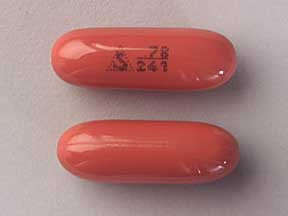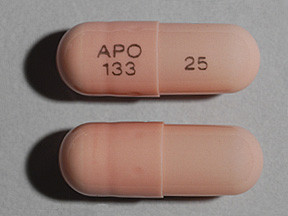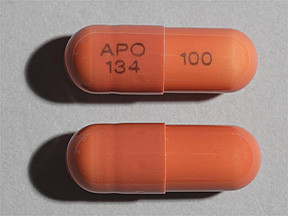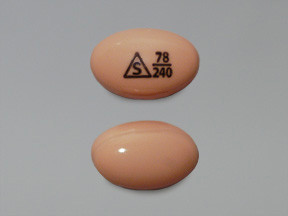CYCLOSPORINE - ORAL
PHONETIC PRONUNCIATION: (SYE-kloe-SPOR-in)
COMMON BRAND NAME(S): Sandimmune
GENERIC NAME(S): cyclosporine
Uses
USES: Cyclosporine is used to prevent organ rejection in people who have received a liver, kidney, or heart transplant. It is usually taken along with other medications to allow your new organ to function normally. Cyclosporine belongs to a class of drugs known as immunosuppressants. It works by weakening the immune system to help your body accept the new organ as if it were your own.
How to use CYCLOSPORINE - ORAL
HOW TO USE: Take this medication by mouth as directed by your doctor, usually once daily. You may take this medication with or without food, but it is important to choose one way and take this medication the same way with every dose. The dosage is based on your weight, medical condition, lab tests, and response to treatment. Avoid eating grapefruit or drinking grapefruit juice while using this medication unless your doctor or pharmacist says you may do so safely. Grapefruit can increase the chance of side effects with this medicine. Ask your doctor or pharmacist for more details. Use this medication regularly to get the most benefit from it. To help you remember, take it at the same time each day.
Side Effects
Precautions
Interactions
Overdose
Images

- color
- dusty rose
- shape
- oblong
- imprint
- logo and 78 241

- color
- dusty rose
- shape
- oblong
- imprint
- logo and 78 241

- color
- pale reddish brown
- shape
- oblong
- imprint
- APO 133, 25

- color
- reddish-brown
- shape
- oblong
- imprint
- APO 134, 100

- color
- pale reddish brown
- shape
- oblong
- imprint
- APO 133, 25

- color
- pale reddish brown
- shape
- oblong
- imprint
- APO 133, 25

- color
- reddish-brown
- shape
- oblong
- imprint
- APO 134, 100
Reviews
Faq for CYCLOSPORINE - ORAL
Cyclosporine oral is used to prevent organ rejection in patients who have undergone kidney, liver, or heart transplants. It is also prescribed to treat certain autoimmune diseases such as rheumatoid arthritis and psoriasis.
Cyclosporine oral works by suppressing the activity of the immune system, reducing the risk of rejection in transplant patients and controlling autoimmune diseases. It specifically inhibits the production of certain immune cells called T-lymphocytes.
The common side effects of cyclosporine oral may include nausea, vomiting, diarrhea, headache, tremor, high blood pressure, and increased risk of infections. It may also cause kidney problems and increase the risk of certain types of cancer.
The effects of cyclosporine oral may be seen within a few weeks to months, depending on the condition being treated. It is important to follow the prescribed dosage and give the medication enough time to take effect.
It is not recommended to drink alcohol while taking cyclosporine oral as it can increase the risk of liver damage and may affect the way the medication works. It is best to consult with your doctor before consuming alcohol.
Yes, cyclosporine oral can interact with various medications, including certain antibiotics, antifungal drugs, and cholesterol-lowering medications. It is important to inform your doctor about all the medications you are currently taking to avoid any potential interactions.
Cyclosporine oral should be taken exactly as prescribed by your doctor. It is usually taken twice daily with or without food. It is important to take it at the same time each day to maintain a consistent level of the medication in your body.
Cyclosporine oral should only be used during pregnancy or breastfeeding if the potential benefits outweigh the risks. It is essential to discuss the possible risks with your doctor before using this medication while pregnant or breastfeeding.
If you miss a dose of cyclosporine oral, take it as soon as you remember. However, if it is close to the time of your next dose, skip the missed dose and resume your regular dosing schedule. Do not take a double dose to make up for the missed one.
Warning
WARNING: Cyclosporine lowers your ability to fight infections. This may make you more likely to get a serious (rarely fatal) infection or make any infection you have worse. This effect may also increase your risk of getting certain types of cancer (such as skin cancer, lymphoma). Tell your doctor right away if you have any signs of infection or cancer such as sore throat that doesn't go away, fever, chills, cough, burning/frequent urination, unusual skin changes, change in appearance or size of moles, unusual weight loss, swollen lymph glands, unusual lumps, night sweats. Cyclosporine can also cause high blood pressure and kidney problems. The risk of both problems increases with higher doses and longer treatment with this drug. Your doctor will monitor your blood pressure and kidney function while you take this medication. Psoriasis patients who have had certain previous treatments (such as coal tar, methotrexate, radiation treatment, light treatment with PUVA/UVB) are at increased risk to develop skin cancer. Talk to your doctor of the risks and benefits of this medication. Different brands of this medication may deliver different amounts of medication. Do not switch brands of cyclosporine without your doctor's permission and directions.
Disclaimer
IMPORTANT: HOW TO USE THIS INFORMATION: This is a summary and does NOT have all possible information about this product. This information does not assure that this product is safe, effective, or appropriate for you. This information is not individual medical advice and does not substitute for the advice of your health care professional. Always ask your health care professional for complete information about this product and your specific health needs.

No Reviews Yet